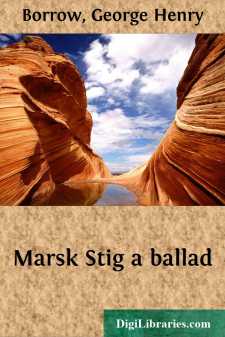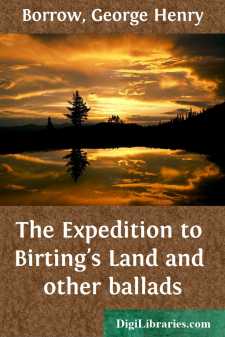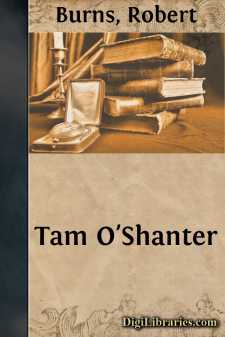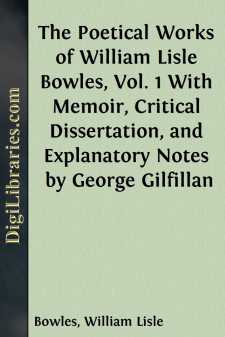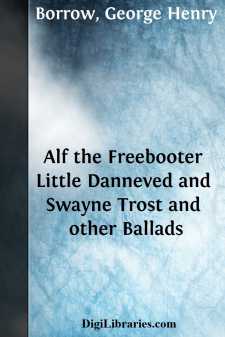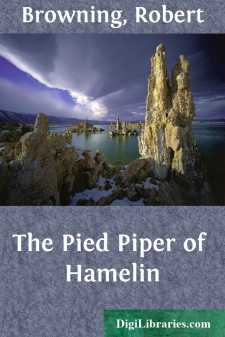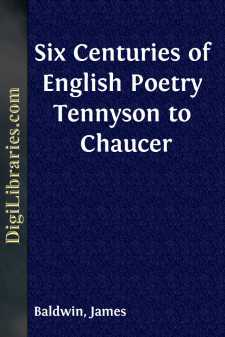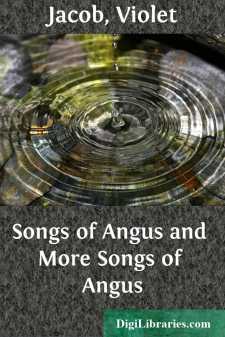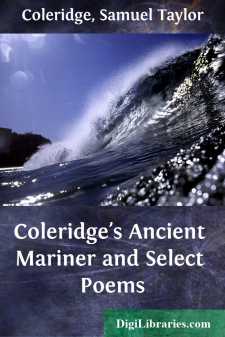Poetry
- American 96
- Ancient, Classical & Medieval 41
- Asian 15
- Australian & Oceanian 11
- Canadian 11
- Caribbean & Latin American 5
- Children's Poetry & Nursery rhymes 51
- Continental European 11
- English, Irish, Scottish, Welsh
- General 483
- Inspirational & Religious 7
- Middle Eastern 3
English, Irish, Scottish, Welsh Books
Sort by:
PART I. Marsk Stig he out of the country rode To win him fame with his good bright sword;At home meantide the King will bide In hope to lure his heart’s ador’d. The King sends word to the Marshal Stig That he to the fields of war should fare;Himself will deign at home to remain And take the charge of his Lady fair. In came the Marshal’s serving man, And a kirtle of green that...
more...
THE EXPEDITION TO BIRTING’S LAND The King he o’er the castle rules, He rules o’er all the land;O’er many a hardy hero too, With naked sword in hand. Let the courtier govern his steed, The boor his thatchèd cot,But Denmark’s King o’er castles rules, For nobler is his lot. King Diderik sits on Brattingsborg, And round he looks with pride:“No one I know of in the...
more...
by:
Robert Burns
WHEN chapman billies leave the street,And drouthy neebors, neebors meet,As market-days are wearing late,An' folk begin to tak the gate;While we sit bousing at the nappy,An' getting fou and unco happy,We think na on the lang Scots miles,The mosses, waters, slaps, and styles,That lie between us and our hame,Whar sits our sulky sullen dame,Gathering her brows like gathering storm,Nursing her...
more...
PREFACE. A Ninth Edition of the following Poems having been called for by the public, the author is induced to say a few words, particularly concerning those which, under the name of Sonnets, describe his personal feelings. They can be considered in no other light than as exhibiting occasional reflections which naturally arose in his mind, chiefly during various excursions, undertaken to relieve, at...
more...
Song the First Sir Alf he is an Atheling,Both at Stevn and at Ting. Know ye little Alf? Alf he builds a vessel stout,For he will rove and sail about. Alf he builds a vessel high,The trade of pirate he will try. He draws on the sand a circle mark,And with a bound he gained the bark. Upon the prow Alf foremost stood,And Copenhagen’s koggers view’d. O’er the wide sea he flung a look,He knew the...
more...
by:
Robert Browning
THE PIED PIPER OF HAMELIN Listen I.Hamelin Town's in Brunswick,By famous Hanover city;The river Weser, deep and wide,Washes its wall on the southern side;A pleasanter spot you never spied;But, when begins my ditty,Almost five hundred years ago,To see the townsfolk suffer soFrom vermin, was a pity. ListenRats!They fought the dogs and killed the cats,And bit the babies in the cradles, And ate the...
more...
by:
James Baldwin
Select English Classics which the publishers have in course of preparation. The series will include an extensive variety of selections chosen from the different departments of English literature, and arranged and annotated for the use of classes in schools. It will embrace, among other things, representative specimens from all the best English writers, whether of poetry or of prose; selections from...
more...
by:
John Hartley
Th' Better Part. A poor owd man wi' tott'ring gait,Wi' body bent, and snowy pate,Aw met one day;—An' daan o' th' rooad side grassy banksHe sat to rest his weary shanks;An' aw, to wile away my time,O'th' neighbouring hillock did recline,An' bade "gooid day." Said aw, "Owd friend, pray tell me true,If in your heart yo niver rueThe time...
more...
by:
Violet Jacob
TAM I' THE KIRK O Jean, my Jean, when the bell ca's the congregationOwre valley an' hill wi' the ding frae its iron mou',When a'body's thochts is set on his ain salvation, Mine's set on you. There's a reid rose lies on the Buik o' the Word 'afore yeThat was growin' braw on its bush at the keek o' day,But the lad that pu'd yon...
more...
I. THE BEGINNINGS Coleridge lived in what may safely be called the most momentous period of modern history. In the year following his birth Warren Hastings was appointed first governor-general of India, where he maintained English empire during years of war with rival nations, and where he committed those acts of cruelty and tyranny which called forth the greatest eloquence of the greatest of English...
more...


